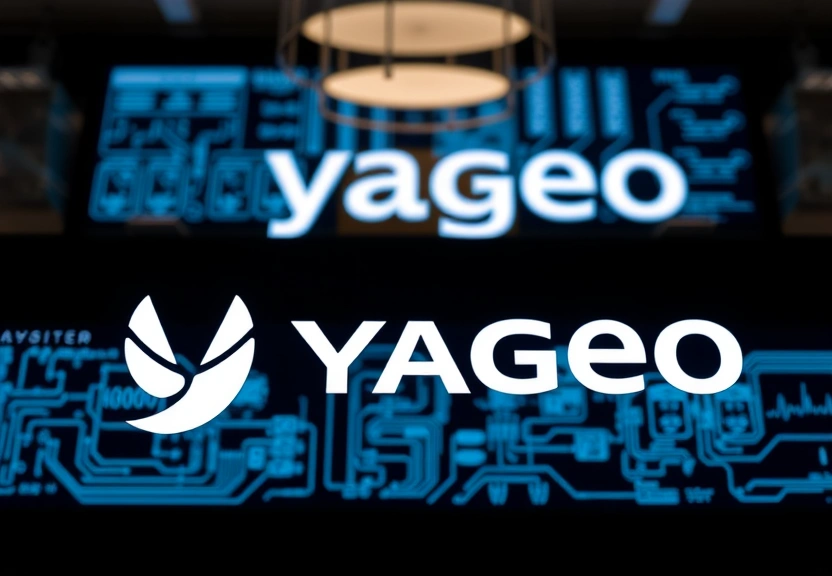Yageo’s Commitment to Technology Protection in Shibaura Electronics Acquisition Deal
In recent developments, Taiwan’s Yageo Corporation (TWSE: 2327) has announced its intent to acquire Japan’s Shibaura Electronics (TSE: 6957). This acquisition is not just a business transaction; it has significant implications for technology protection and national security, especially considering the geopolitical context surrounding technology transfer between Taiwan and Japan. The deal has raised eyebrows within Japan, prompting concerns about the potential risks associated with foreign ownership of sensitive technology.

In response to these concerns, Yageo’s Chairman, Pierre Chen, has publicly committed to implementing stringent measures to safeguard technology and intellectual property in the event that the acquisition proceeds. This article delves into the implications of the acquisition, the specific technology protection measures proposed by Yageo, and the broader context regarding national security issues tied to international technology transfers.
The Acquisition Landscape: Yageo and Shibaura Electronics
Yageo, a leading global provider of passive components, has set its sights on Shibaura Electronics, known for its advanced electronic components and materials. This acquisition is part of Yageo’s strategy to expand its technological capabilities and market reach. However, given Japan’s stringent regulations concerning foreign investments, particularly in sectors deemed critical to national security, the deal has sparked considerable debate.
Understanding the Stakes
The stakes are high in this acquisition, not only for Yageo and Shibaura but also for the broader semiconductor and electronics industries. Japan is home to some of the most advanced technology companies in the world, and the potential transfer of technology to a Taiwanese firm raises red flags for many stakeholders. Concerns primarily revolve around the possibility of sensitive technologies falling into the hands of competitors or adversaries.
Yageo’s Technology Protection Measures
In an effort to assuage fears regarding technology leakage, Yageo has outlined several key measures that will be implemented post-acquisition. These measures are designed to ensure that proprietary technology remains secure and that sensitive information is handled with the utmost care.
- Stringent Access Controls: Yageo plans to enforce strict access controls to sensitive technology and information, limiting access to only authorized personnel.
- Data Encryption: All sensitive data will be encrypted to provide an additional layer of security against unauthorized access and data breaches.
- Regular Audits and Compliance Checks: The company will conduct regular audits and compliance checks to ensure adherence to technology protection protocols.
- Employee Training Programs: Comprehensive training programs will be instituted to educate employees on the importance of technology protection and to reinforce best practices.
- Collaboration with Japanese Authorities: Yageo aims to work closely with Japanese regulatory bodies to ensure that all technology protection measures align with national security interests.
National Security Concerns: The Bigger Picture
The acquisition of Shibaura Electronics by Yageo is not merely a corporate maneuver; it reflects broader national security concerns that resonate across the Asia-Pacific region. Japan has historically been cautious regarding foreign direct investment, especially in sectors that involve critical technologies.
The Role of Geopolitics
Geopolitical tensions, particularly between China, Taiwan, and Japan, further complicate this landscape. As Taiwan continues to assert its position as a leading player in the global semiconductor market, Japan remains vigilant about protecting its technological assets from potential foreign exploitation. The Japanese government has a vested interest in ensuring that sensitive technologies do not fall into the wrong hands, particularly given the rising competition from China.
Market Reaction and Future Prospects
The announcement of Yageo’s acquisition intentions has elicited mixed reactions from the market. Investors are looking closely at how Yageo plans to navigate the regulatory landscape and address national security concerns. The potential for growth and expansion in the semiconductor industry is significant, but so too are the risks associated with international acquisitions.
Investor Sentiment
Investor sentiment remains cautiously optimistic. Many analysts believe that if Yageo can demonstrate its commitment to technology protection and successfully address the concerns raised by Japanese authorities, the acquisition could pave the way for further collaboration between Taiwan and Japan in the technology sector. This could foster innovation and drive advancements in electronic components, benefiting both nations in the long run.
FAQs about the Yageo and Shibaura Electronics Deal
1. What is the significance of the Yageo and Shibaura Electronics acquisition deal?
The acquisition is significant as it represents a cross-border investment that could impact technology transfer, market dynamics, and national security considerations between Taiwan and Japan.
2. What specific technology protection measures will Yageo implement?
Yageo plans to implement stringent access controls, data encryption, regular audits, employee training programs, and collaboration with Japanese authorities to protect technology.
3. Why are there national security concerns regarding this acquisition?
National security concerns arise from the potential leakage of sensitive technology to foreign entities, particularly given the geopolitical context in the Asia-Pacific region.
4. How might this acquisition impact the semiconductor market?
If successful, the acquisition could enhance Yageo’s technological capabilities and market reach, potentially leading to increased competitiveness in the global semiconductor market.
5. What are the next steps for Yageo and Shibaura Electronics in this acquisition process?
The next steps involve regulatory approvals, negotiations on the terms of the deal, and the implementation of technology protection measures to alleviate concerns from various stakeholders.
Conclusion
The proposed acquisition of Shibaura Electronics by Yageo represents a significant moment in the intersection of technology and national security. With growing concerns about technology leakage and foreign ownership of critical infrastructure, Yageo’s commitment to implementing robust technology protection measures will be crucial in addressing these fears. As the world becomes increasingly interconnected, the stakes of such acquisitions grow ever higher, and it will be essential for companies like Yageo to navigate these challenges with transparency and diligence. The outcome of this acquisition could not only influence the future of both companies but also shape the trajectory of technological collaboration in the Asia-Pacific region.
📰 Original Source
Este artigo foi baseado em informações de: https://www.tradingview.com/news/reuters.com,2025:newsml_L6N3SA00I:0-yageo-says-will-protect-technology-in-shibaura-electronics-deal/
